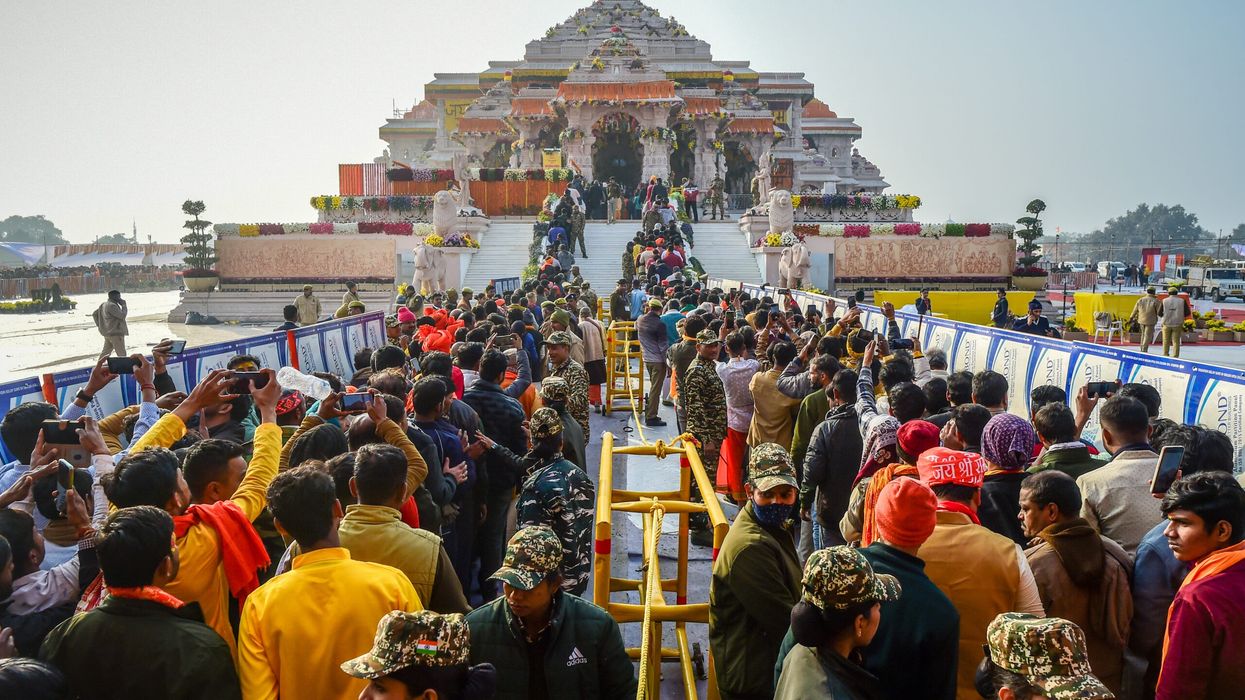INDIA’S prime minister Narendra Modi last month inaugurated one of the holiest Hindu temples and his government has been spending millions of dollars to develop many others, boosting tourism and his appeal among the majority community ahead of elections.
Apart from a $6 billion (£4.7bn) makeover of the northern city of Ayodhya, where Modi opened the first phase of a Ram temple, the federal government has spent nearly $120 million (£94.25m) to develop dozens of Hindu pilgrimage sites in the past decade, according to government data, and more funding is planned.
The Ram temple, built on the site of the Mughal-era Babri mosque that was razed by a Hindu mob in 1992 and where Hindus believe the deity Ram was born, is estimated to draw up to 100 million tourists a year, according to Jefferies analysts.
In comparison, about nine million people visit Vatican City in a year and about 20 million Mecca.
“The creation of a new religious tourist centre (Ayodhya) with improved connectivity and infrastructure can create a meaningfully large economic impact,” the analysts wrote.
Since Modi inaugurated the Hindu pilgrimage site of Kashi Vishwanath Corridor on the banks of the Ganges in 2021 in his constituency of Varanasi, more than 130 million tourists have visited the area, according to government data. The yearly footfall in Varanasi, which like Ayodhya is in India’s most populous state of Uttar Pradesh and is one of the oldest living cities in the world, was barely seven million before that.
Analysts said tourism income for locals and hotels in Varanasi – by dying where Hindus believe to attain salvation and freedom from the cycle of birth and re-birth – have surged by up to 65 per cent.
With nearly $200bn (£157bn) in revenue, tourism contributes about seven per cent of India’s economy, which is below most large emerging and developed economies by up to five percentage points.
The new temple and renovations of many others are likely to greatly boost the electoral prospects of the Bharatiya Janata Party (BJP) of Modi, who is widely expected to win a rare third straight term in general elections due by May.
Monday’s inauguration fulfilled a decades-old election pledge of BJP. Of the 46 projects funded under the “Pilgrimage Rejuvenation and Spiritual Heritage Augmentation Drive” since Modi came to power in 2014, only about half a dozen are Muslim or Sikh sites. (Reuters)




